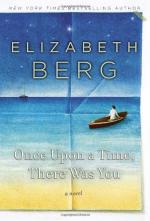It was while he was sunk in this state of melancholy, and some months after Miss Kirkland had sailed to Egypt, that hope returned.
For a week-end he had invited Holden and Lowell, two former classmates, and Nelson Mortimer and his bride. They were all old friends of their host and well acquainted with the cause of his discouragement. So they did not ask to be entertained, but, disregarding him, amused themselves after their own fashion. It was late Friday afternoon. The members of the house-party had just returned from a tramp through the woods and had joined Ainsley on the terrace, where he stood watching the last rays of the sun leave the lake in darkness. All through the day there had been sharp splashes of rain with the clouds dull and forbidding, but now the sun was sinking in a sky of crimson, and for the morrow a faint moon held out a promise of fair weather.
Elsie Mortimer gave a sudden exclamation, and pointed to the east. “Look!” she said.
The men turned and followed the direction of her hand. In the fading light, against a background of sombre clouds that the sun could not reach, they saw, moving slowly toward them and descending as they moved, six great white birds. When they were above the tops of the trees that edged the lake, the birds halted and hovered uncertainly, their wings lifting and falling, their bodies slanting and sweeping slowly, in short circles.
The suddenness of their approach, their presence so far inland, something unfamiliar and foreign in the way they had winged their progress, for a moment held the group upon the terrace silent.
“They are gulls from the Sound,” said Lowell.
“They are too large for gulls,” returned Mortimer. “They might be wild geese, but,” he answered himself, in a puzzled voice, “it is too late; and wild geese follow a leader.”
As though they feared the birds might hear them and take alarm, the men, unconsciously, had spoken in low tones.




